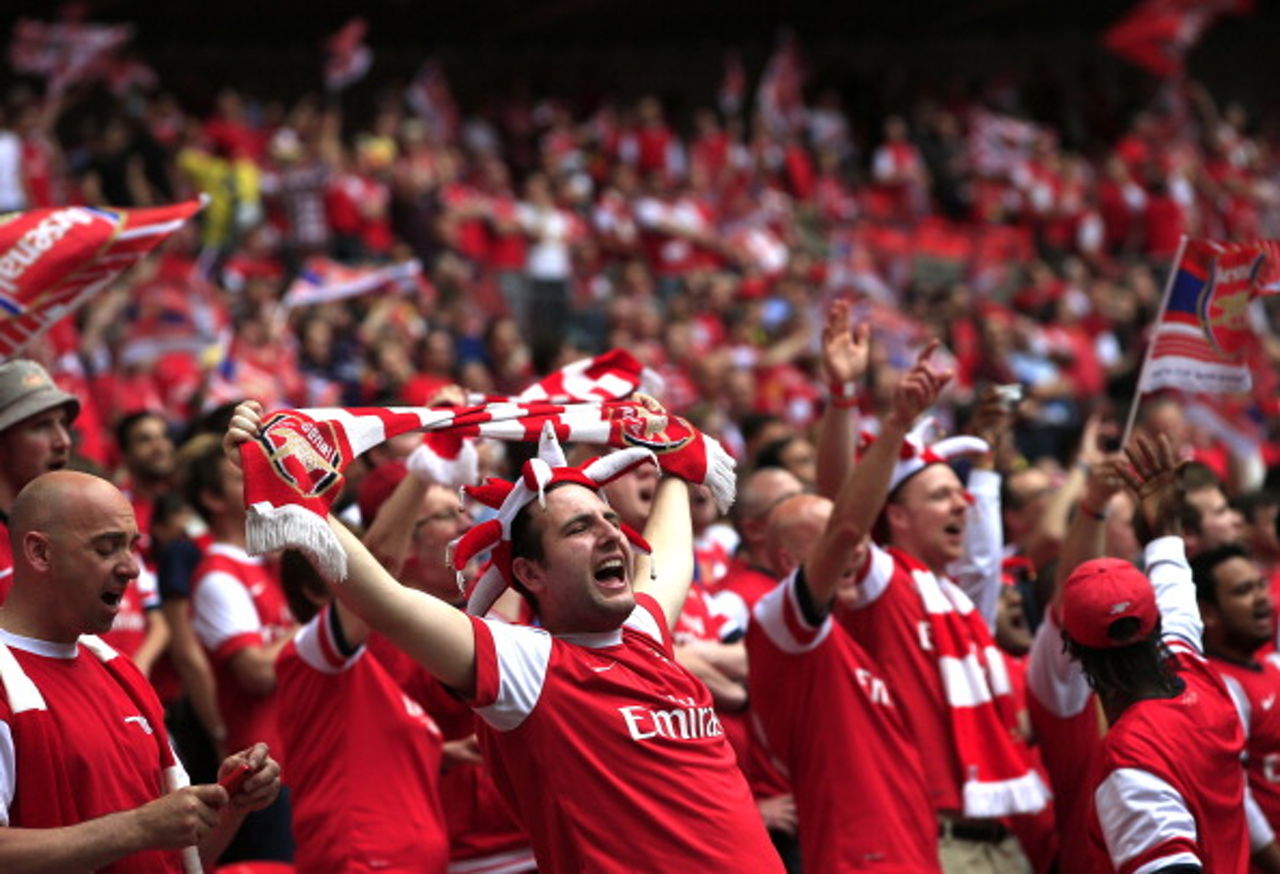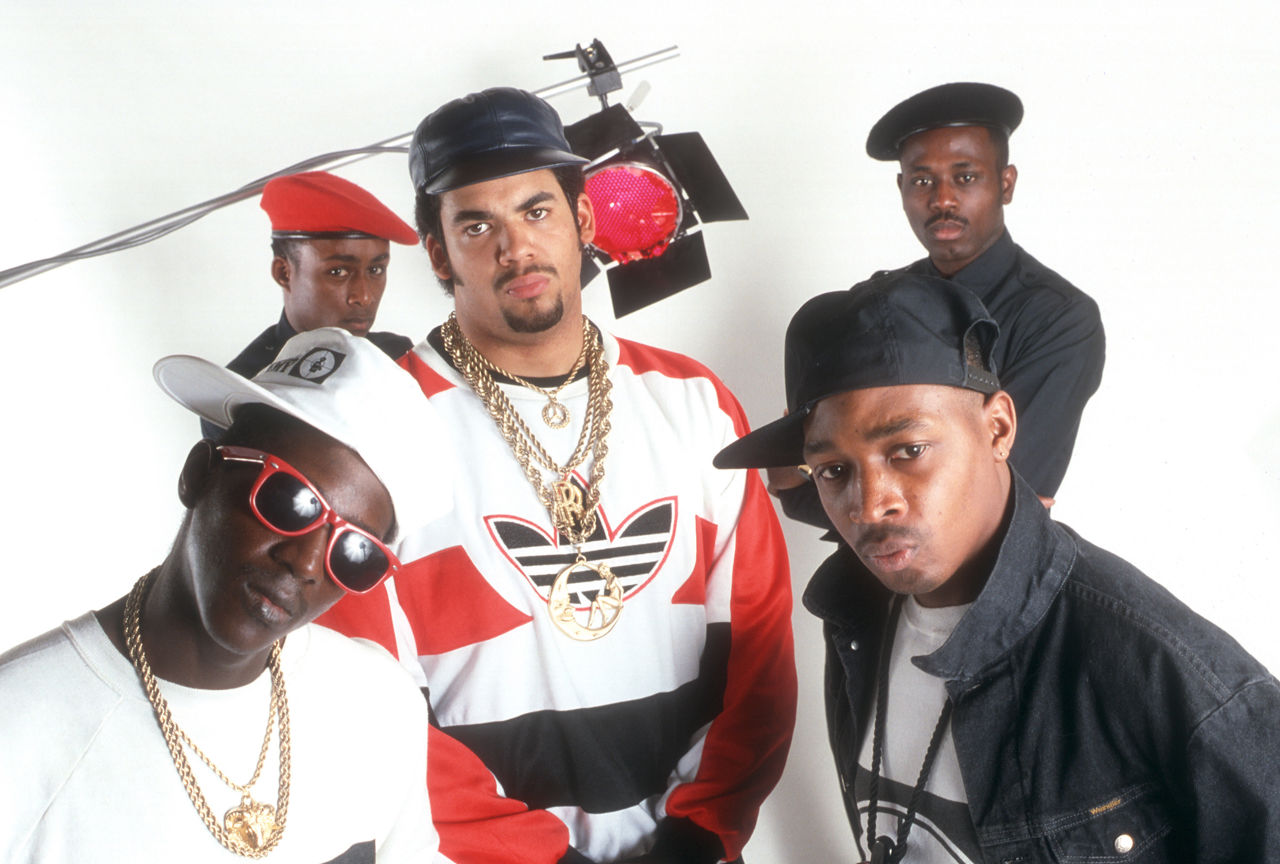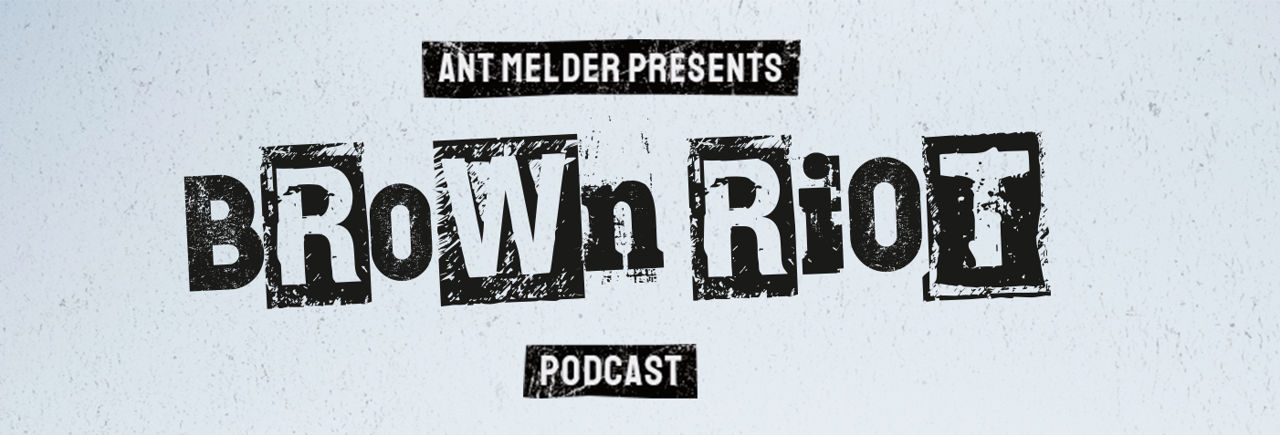How to... start a Brown Riot
Gradual progress on diversity is good but it’s time to accelerate the change, says Sydney ECD and Brown Riot podcast creator/host, Ant Melder.
In Fever Pitch, Nick Hornby’s memoir of an obsessive Arsenal fan, there’s a telling anecdote about a very vocal fan who occupies the season ticket seat next to Hornby at Highbury for several seasons in a row.
This chap seems to cherish his Saturday afternoon opportunity to let off steam by screaming obscenities at the opposition players. Hornby, a smart, polite and well-mannered liberal kind of chap is rightly horrified one afternoon to see his neighbour up on his feet, bright red vein throbbing on the side of his temple and saliva flying everywhere as he thrusts his pointed finger pitch-wards like some voodoo weapon as he screams at John Barnes, “You f***ing black c***!”

A couple of seasons later the world has moved on just a little and, much to Hornby’s relief, this same dickhead fan is compelled to – consciously or subconsciously, who knows? – remove the adjectival epithet and simply call a rival black player a “f***ing c**t!”
Reflecting on the thought that perhaps Northern fans might not have been so enlightened, he is filled with “an absurd sense of metropolitan sophisticate pride” at this development. “It’s not much to be grateful for, really, the fact that a man calls another man a c**t but not a black c**t”.
Despite decades of forward momentum, creative departments still seem to be predominantly Caucasian and male; we’re still fishing in the same shallow pool.
I bring this up because I’m greatly interested in the speed of change in the world around us. And the world of advertising and creativity as a microcosm. When I started out as a junior creative in advertising many moons ago, ad agencies in general and creative departments specifically were full of well-to-do, university-educated white blokes. The more reputable the agency, the posher the accents and the more double-barrelled the names.
Yes, you could find the odd black or Asian colleague dotted around the place… mainly when you wandered over to finance with a question about timesheets or into IT to get a floppy disc (told you it was a while ago!). And yes, I was asked IT and finance-related questions inside ad agencies on more than one occasion. Which always struck me as like going up to a random bloke wearing glasses and asking him for an insightful analysis on James Joyce’s Ulysses.

We’re fishing in a talent pool that’s getting shallower
Over the years, as my career in advertising has developed across various creative and creative leadership roles in London and Sydney, I’ve regularly taken the time to intentionally stop, look up and take stock of the make-up of agencies. It’s always a depressing exercise. Despite decades of forward momentum, creative departments still seem to be predominantly Caucasian and male; we’re still fishing in the same shallow pool.
I began to wonder if there’s perhaps such a paucity of non-Caucasian creative leaders that there’s only space for one in people’s consciousness.
Sometimes being congratulated is beyond awkward
Last year, an interesting set of circumstances in Cannes caused me to think about these issues with greater clarity than ever before. In my capacity as joint ECD at Host/Havas, I was over in France enjoying a bit of award success, some rich food and a lot of booze. Fun times.
One afternoon, at a production company pool party, I had a friendly chat with a creative from a Sydney ad agency. After five minutes, he said something like, “Anyway, great to see you Ash, congrats on the success of Project Revoice.” Immediately realising this was a case of mistaken browndentity, I awkwardly muttered my thanks and shuffled away thinking little of it.
However, Cannes was a big week for my good mate Ash Naidu, the amazingly talented ECD of BWM Sydney, and Project Revoice continued to pick up Lions – including the Grand Prix For Good. And the more Lions it won, the more people mistakenly congratulated me. Which was both funny and a bit sad. I began to wonder if there’s perhaps such a paucity of non-Caucasian creative leaders that there’s only space for one in people’s consciousness.
When I got back to Sydney, I looked around at the creative agency landscape with fresh eyes. And realised that yes, we’re still way too one dimensional. But, big BUT…it’s not all doom and gloom. There are pockets of diverse brilliance all over the place. CCOs, ECDs, CEOs and MDs from a whole rainbow of backgrounds – from Indian and Indigenous to Asian, Greek, Macedonian and beyond. Creative and business leaders who are leading by example, showing the industry (and the world) that talent has no boundaries and no default skin colour.
I’m not looking for a revolution but I definitely want to hurry things along a bit.
Inspiration is everywhere
A lifelong Public Enemy fan, I’ve always thought that one of Chuck D’s most hard-hitting lyrics was the line on Fight The Power: “Elvis was a hero to most, but he never meant shit to me.” It spoke of the need for young black kids to have heroes and role models they could truly identify with and relate to.
In my own way, in the advertising community’s corner of the world, I wanted to give non-Caucasian kids their own heroes. Inspired by the Saturday Morning collective and AdColor in the US, I wanted to celebrate the diverse legends of the advertising world and ‘reach back’ to give young creatives from all kinds of backgrounds role models to aspire to. To ‘See it’ so they can work their arses off to one day ‘be it’.

What can The Clash teach us about diversity?
All of this thinking was the genesis of my new podcast series, Brown Riot, created alongside my talented friends at Smith & Western Sound. The name was inspired by The Clash’s first single, White Riot, which referenced the inspiration Joe Strummer and Paul Simonon had taken from witnessing up close the black community’s furious, take-no-shit response to police brutality during the riots at the Notting Hill Carnival in 1976. It was a cri de coeur for white kids to find a similar sense of communal passion, to unite behind their own sense of outrage at social injustice.
I guess Brown Riot is a call for a riot of my own. One of my guests, ECD of M&C Saatchi Sydney, Avish Gordhan, said on the podcast, “Transformation over a very long time is progress and transformation over a very small time is revolution.” I’m not looking for a revolution but I definitely want to hurry things along a bit.

This needs to be an industry-wide conversation, not a niche issue
The series launched a week ago and the response has been absolutely phenomenal. Everyone from industry legends, agency leaders, aspiring students and junior creatives have reached out to me to offer good vibes, support and encouragement. It’s clearly the right time to be tabling these issues and having this debate. Importantly, it’s a conversation that we should all be involved in, regardless of the colour of our skin. At this point, diversity’s perhaps an over-used word but working together to move things forward is a must. To bring a new generation of talent into the industry, to celebrate the great talent we have and, most of all, to do the best possible work.
I’m full of excitement, positivity and optimism right now. In fact, there’s just one thing that’d put the cherry on the cake for me. I’d love a 2019 remake of Fight The Power where Chuck D raps in his iconic booming bass-tones: “Bernbach was a hero to most/Including me/But it’d be nice to have some non-Caucasian creative heroes, too”.
)




 + membership
+ membership








